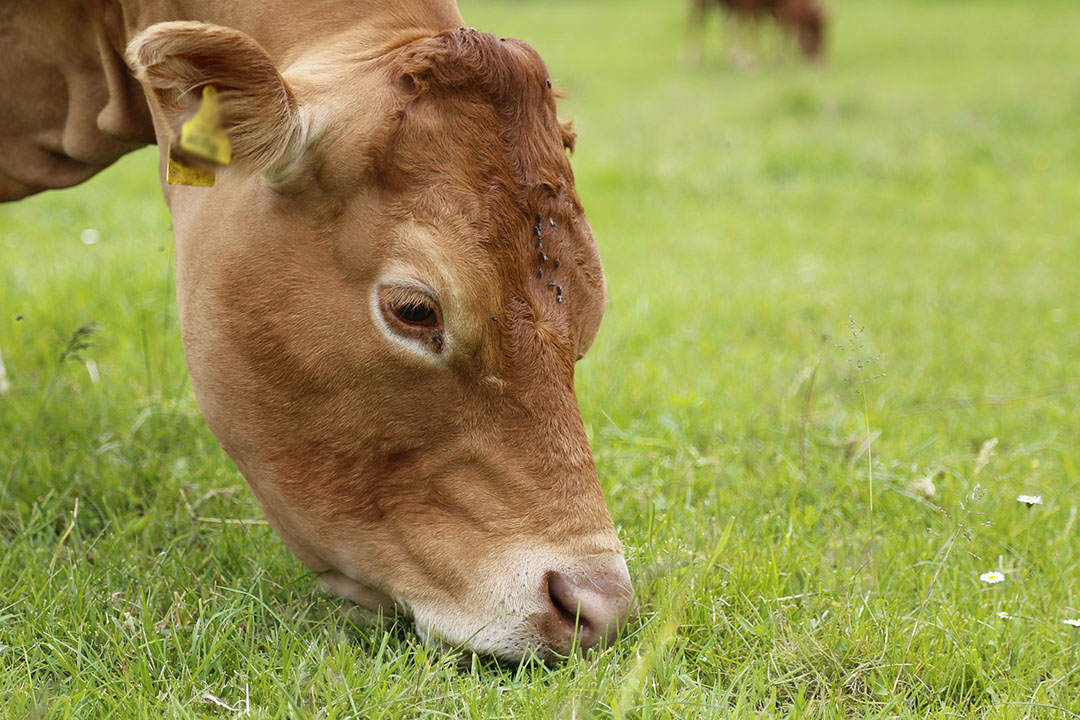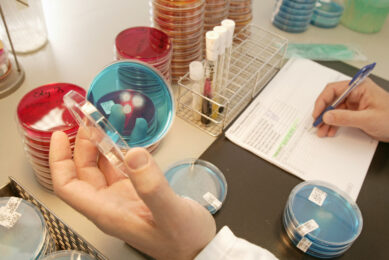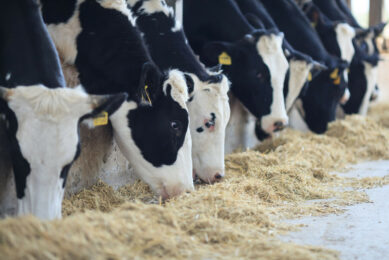Nutritional strategies to reduce antibiotics in beef cattle

The approach to antibiotic use in animal husbandry requires specific considerations, particularly in relation to the type of animal bred with specific reference to the age and resistance of the animals. In the beef cattle rearing sector, the greater resistance and robustness of the animals, together with the application of good management practices, make it possible to avoid preventive antibiotic treatments and decidedly limit their overall use.
The “receiving phase” is, however, the one phase of the rearing cycle recognised as being particularly critical due to the high health risk associated with it. For animals naturally accustomed to living together in herds and therefore with social relations founded on a well-established and stable hierarchy, factors such as a change of environment, feed and, above all, mixing with other animals, may subject them to severe stress.
Stress impairs immune defences
Stress is known to cause an impairment of their immune defences, which, together with reduced feed consumption and rumination, results in an increased risk of both digestive and respiratory problems, such as BRD (Bovine Respiratory Disease). The use of functional feed additives could limit the consequences of stress, guaranteeing prompt and effective immune reactivity and rapidly restabilising conditions of normal rumination. It is in this setting that yeast pro- and post-biotics play a central role.
The role of yeast pro- and post-biotics and selenium-enriched yeast
With the aim of defining a effective nutritional approach to support the reduction in the use of antimicrobials under conditions of high stress, an assessment was made. The effect of a combination of yeast probiotic, organic selenium and yeast parietal fractions rich in mannans and beta 1,3-1,6 glucans on productive performance, health and digestive efficiency of newly arrived beef cattle was studied.
The study
- Conducted in the winter,
- Using an extremely high turnover of animals of various breeds (Limousine, Charolaise, crossbreeds), origins and weights upon arrival (from 230 to 380 kg).
- The antibiotic prophylaxis was not used, despite the certainty of a high health risk.
- The study involved over 1000 animals, divided into 2 uniform groups of similar weight, genetic assortment and inhomogeneous conformation.
- The control group (487 animals) and treatment group (549 animals) were subjected to the same health management. The only difference being the addition of the pro- and post- biotics to the diet of the cattle in the treatment group for the first 30 days after their arrival.
The results
- The results show that
- The pro- and post- biotics are effective in stimulating both the immune and the digestive functions.
- The animals in the treatment group presented a greater capacity for adaptation.
- BRD morbidity was found to be significantly less in the treated animals than in the control animals (60.8 vs 76.5, p=<0.05).></0.05).>
- The average mortality values, the incidence of animals transferred to the infirmary and the cases of lameness were found to be lower in the treatment group.
- The feed supplements have improved the digestive process and, in particular, rumination and the efficiency of use of the structural and non-structural components of the diet.
- The faeces of the animals in the treatment group were found to have a significantly lower content of starch, NDF and ADF. In fact, yeasts probiotics are known to be capable of increasing the activity and multiplication of ruminal bacteria with positive effects on both the degradability of the fibre in the diet and the use of the starch it contains, thus increasing the efficiency of the feed and the dry matter intake. On the other hand, mannan oligosaccharides stabilise the intestinal environment and safeguard the integrity of the absorbent epithelium with further beneficial effects on digestion and health.
Improved weight gain
The lower incidence and severity of health problems together with the enhanced digestive activity and both ruminal and intestinal stability led to an improvement of the average daily weight gain in the treatment group (Figure 1). This significant improvement was found to be equivalent to 93 g/head/day during the adaptation phase. The increase in ADG was 31 g/head/day when taking the entire rearing period into account. This result is confirmed in the literature, which reveals that the reduced growth that takes place during the days immediately following arrival due to disease or nutritional adaptation difficulties, is not recovered during the subsequent phases of the rearing cycle, thus representing a net loss. In fact, prompt recovery of the full physiological immune and digestive function is a key factor, not only for the animals’ welfare but also for their growth and productive efficiency.
Lower production costs
It therefore emerges that dedicating time and money to the critical phases of any production process represents an indispensable condition, which becomes obligatory when the health of animals and safety of consumers are at stake. Efforts and investments are however normally repaid by the fact that the increasingly restrictive commercial requirements are met, guaranteeing a strong position on the market and larger shares of it for the farm, and that the difference between the costs and benefits is normally in favour of the latter. The production cost, which may seem to be higher, is actually lower due to the reduction in health costs and the improvement of growth and feed efficiency (Table 1). The case at hand is a clear example of this as, for an overall investment of about 5.17 euros per head, the economic return is about 18.66 euros per head.
A practice to be adopted on a regular basis
In conclusion, the results of the study show how the use of a pro- and post biotic supplementation with proven efficacy is a practice to be adopted regularly during the critical phase of adaptation of imported beef cattle. It improves the immune function and resistance of the animals to pathogens resulting in the reduced administration of antibiotics and an increased awareness of their use.
Authors:
Cario Angelo Sgoifo Rossi, University of Milan, Vespa Dept
Silvia Grossi University of Milan, Vespa Department,
Francesca Martinelli, Doctor of Animal Science,
Riccardo Compiani University of Milan ,
Valentin Nenov Global Ruminants Manager, Phileo by Lesaffre











